The origins of economic prosperity: lessons from the enlightenment
Livestream
Roots of economic prosperity
As our event report states, Joel Mokyr underscored the significance of useful knowledge and the Enlightenment in shaping the economic landscape of Europe, highlighting the unique conditions in Britain that facilitated the Industrial Revolution.
As our event report states, Joel Mokyr underscored the significance of useful knowledge and the Enlightenment in shaping the economic landscape of Europe, highlighting the unique conditions in Britain that facilitated the Industrial Revolution.
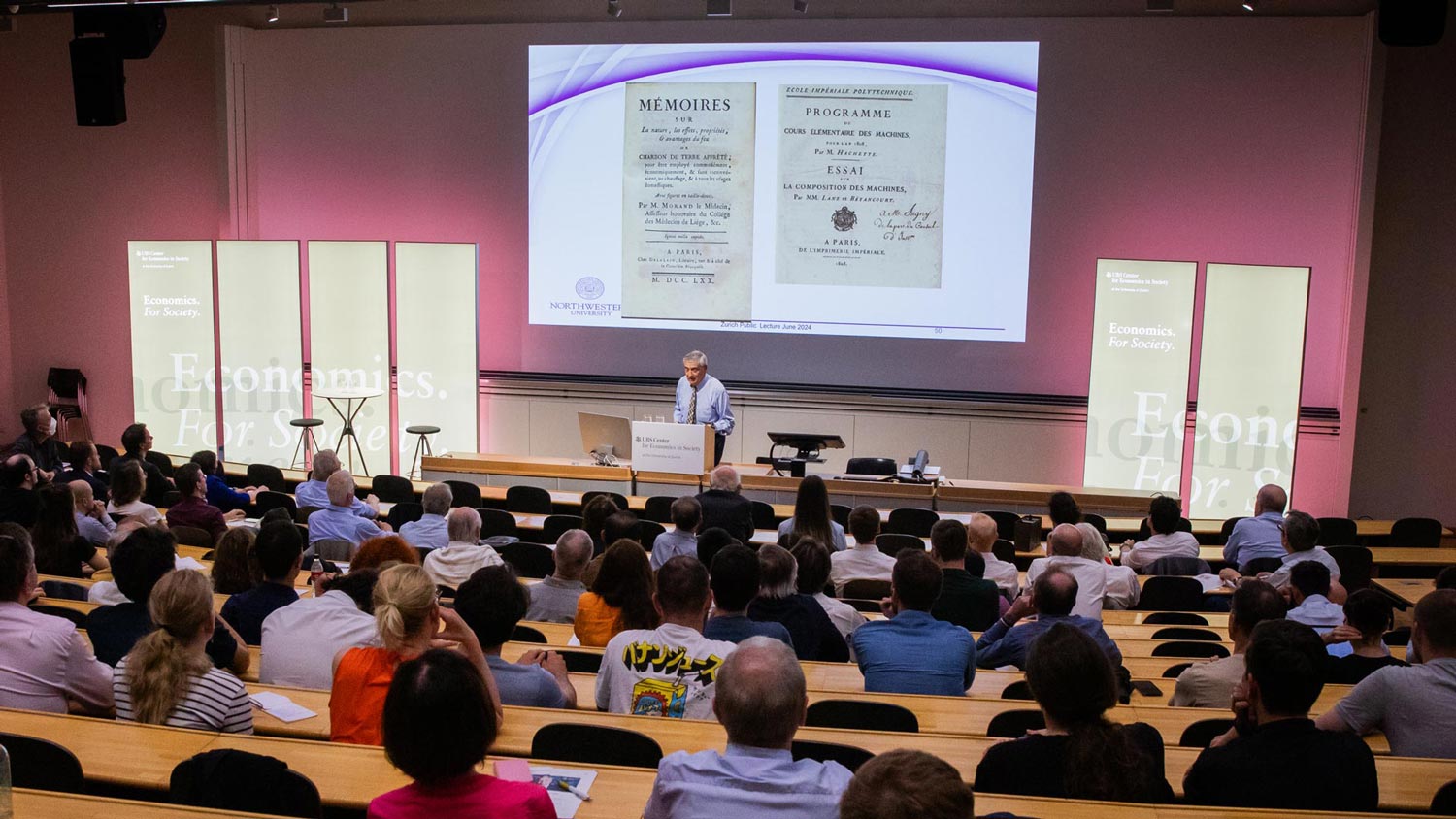
Press
Economic historian Joel Mokyr is an optimist. He believes in the power of technological progress to improve the world. But national vanities and irrational fears sparked by new inventions sometimes make him despair.
Economic historian Joel Mokyr is an optimist. He believes in the power of technological progress to improve the world. But national vanities and irrational fears sparked by new inventions sometimes make him despair.
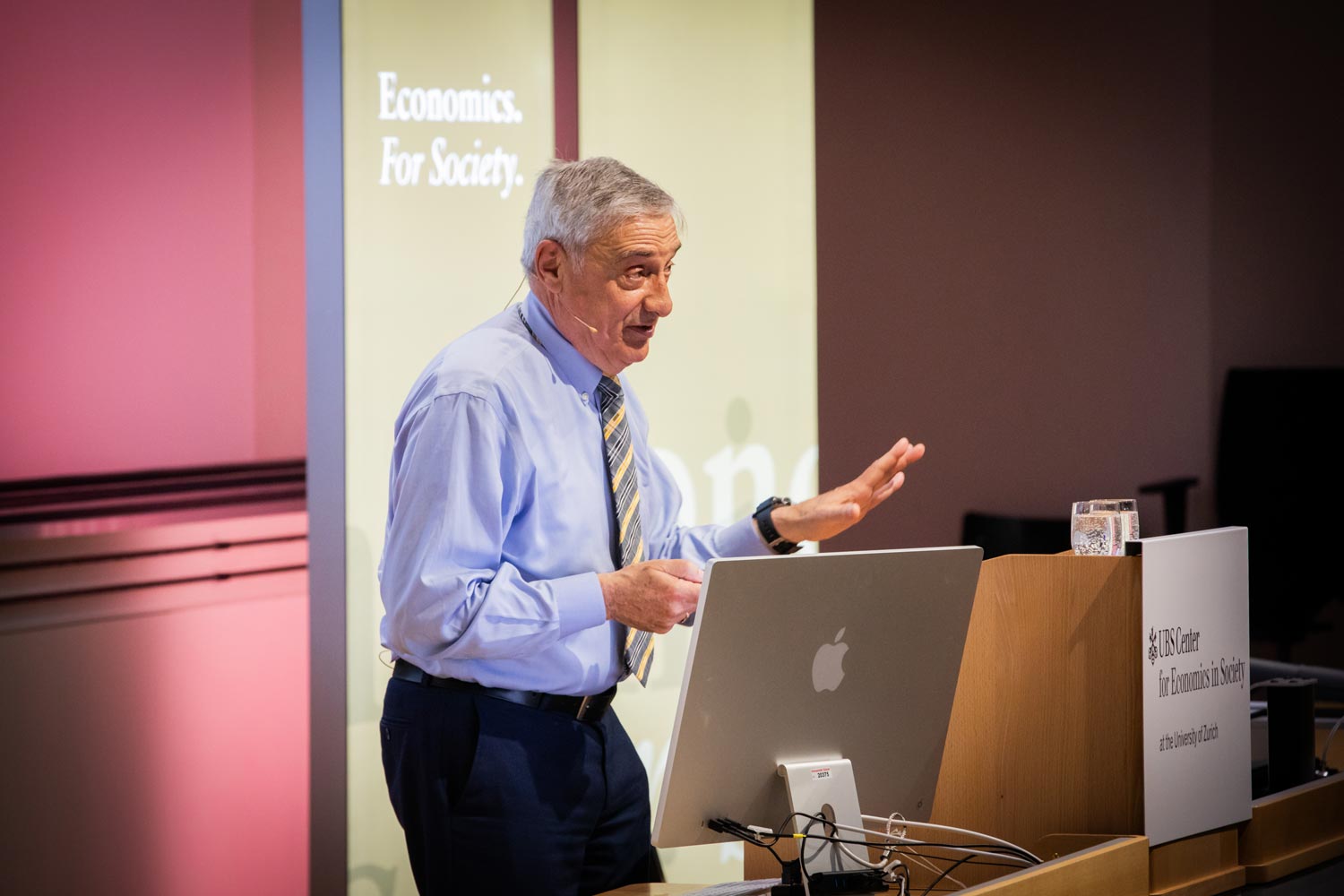
Gallery
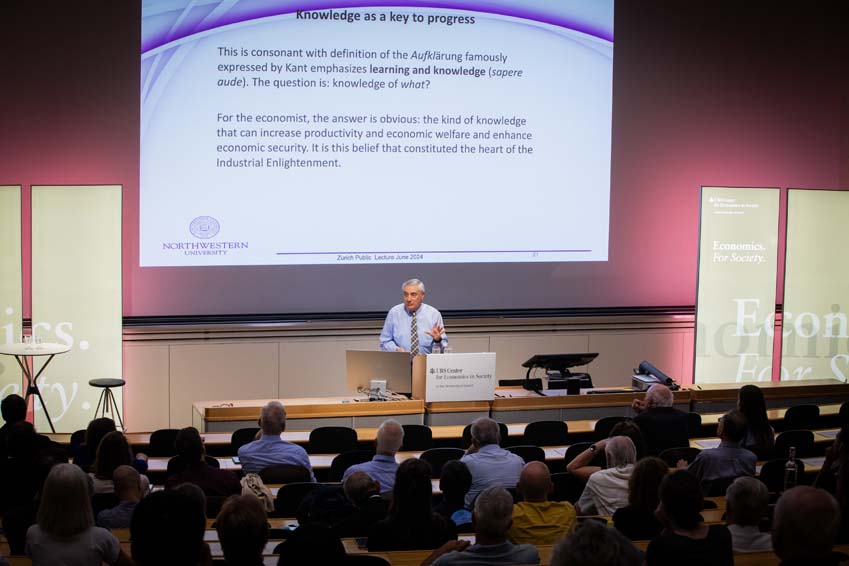

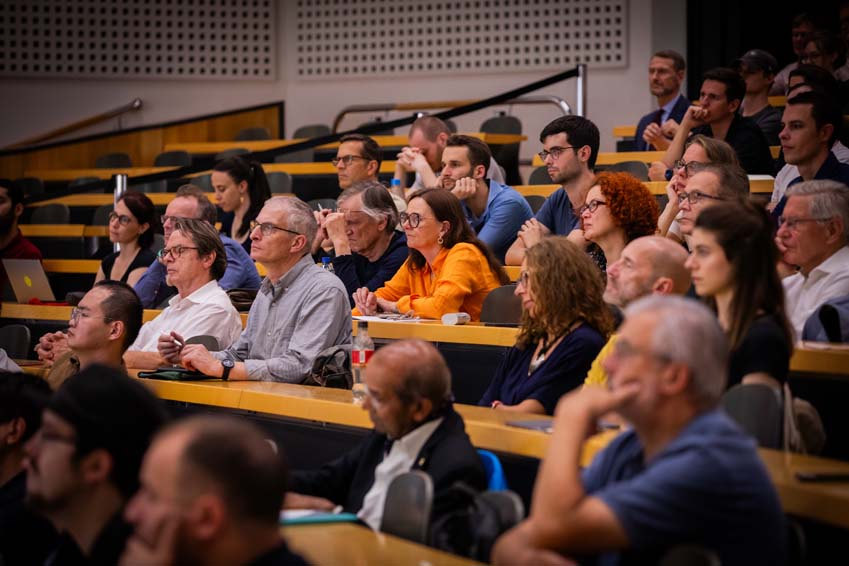
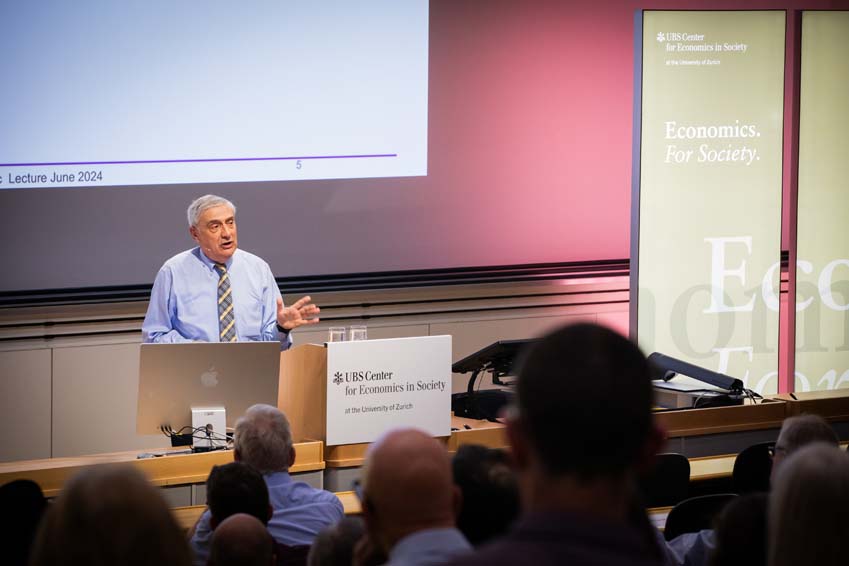
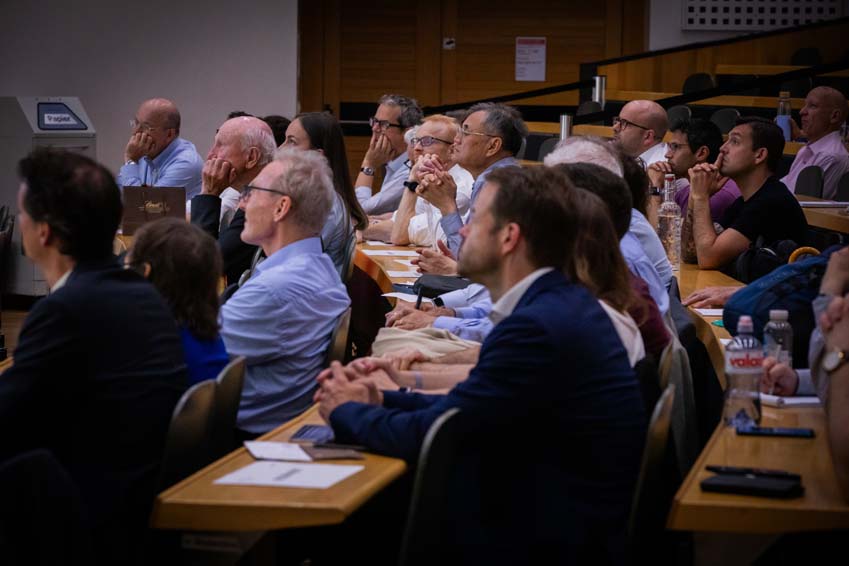
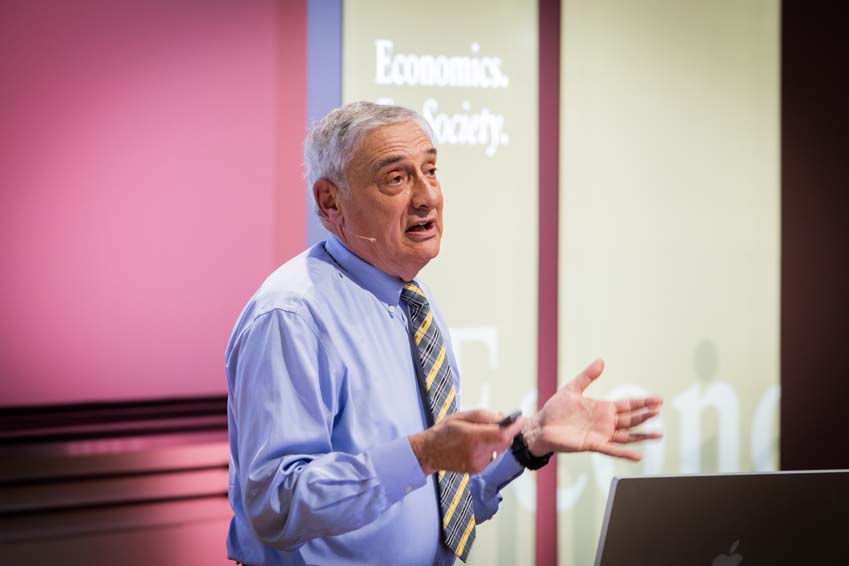
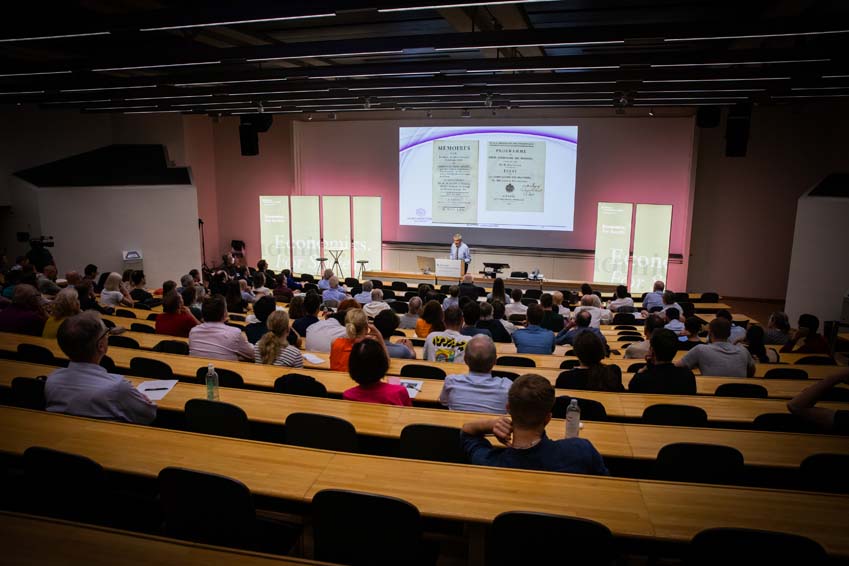
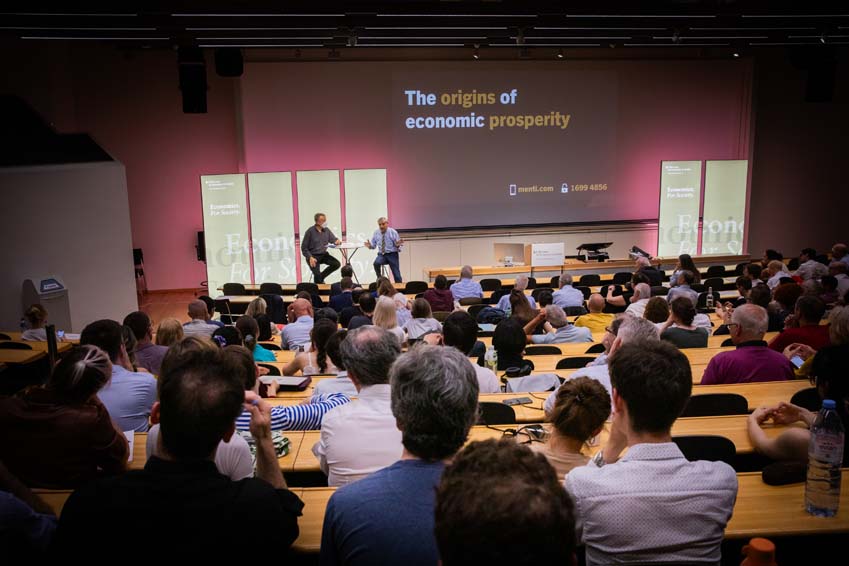
Speaker
Joel Mokyr is Robert H. Strotz Professor of Arts and Sciences and Professor of Economics and History at Northwestern University. His research focuses on the economic history of Europe, specializing in the period 1750–1914. His current research is concerned with the understanding of the economic and intellectual roots of technological progress and the growth of useful knowledge in European societies, as well as the impact that industrialization and economic progress have had on economic welfare. Prof. Mokyr is co-editor of a book series, the Princeton University Press Economic History of the Western World. He was the 2006 winner of the biennial Heineken Award for History offered by the Royal Dutch Academy of Sciences and the winner of the 2015 Balzan International Prize for economic history. He was elected a distinguished member of the American Economic Association. He is a member of the American Academy of Arts and Sciences, the British Academy, the Accademia dei Lincei and Royal Dutch Academy. His book A Culture of Growth – Origins of the Modern Economy, was published in 2016. The Economist praised Mokyr’s book, saying, “It is refreshing that an economist is taking seriously the idea that ideas and culture make a difference to economic growth.” His most recent book is Two Paths to the Twentieth Century: Culture and Institutions in Europe and China, 1000–2000, with Avner Greif and Guido Tabellini, forthcoming with Princeton University Press.
Joachim Voth received his PhD from Oxford in 1996. He works on financial crises, long-run growth, as well as on the origins of political extremism. He has examined public debt dynamics and bank lending to the first serial defaulter in history, analysed risk-taking behaviour by lenders as a result of personal shocks, and the investor performance during speculative bubbles. Joachim has also examined the deep historical roots of anti-Semitism, showing that the same cities where pogroms occurred in the Middle Age also persecuted Jews more in the 1930s; he has analyzed the extent to which schooling can create radical racial stereotypes over the long run, and how dense social networks (“social capital”) facilitated the spread of the Nazi party. In his work on long-run growth, he has investigated the effects of fertility restriction, the role of warfare, and the importance of state capacity. Joachim has published more than 80 academic articles and 3 academic books, 5 trade books and more than 50 newspaper columns, op-eds and book reviews. His research has been highlighted in The Economist, the Financial Times, the Wall Street Journal, the Guardian, El Pais, Vanguardia, La Repubblica, the Frankfurter Allgemeine, NZZ, der Standard, der Spiegel, CNN, RTN, Swiss and German TV and radio.
Joel Mokyr is Robert H. Strotz Professor of Arts and Sciences and Professor of Economics and History at Northwestern University. His research focuses on the economic history of Europe, specializing in the period 1750–1914. His current research is concerned with the understanding of the economic and intellectual roots of technological progress and the growth of useful knowledge in European societies, as well as the impact that industrialization and economic progress have had on economic welfare. Prof. Mokyr is co-editor of a book series, the Princeton University Press Economic History of the Western World. He was the 2006 winner of the biennial Heineken Award for History offered by the Royal Dutch Academy of Sciences and the winner of the 2015 Balzan International Prize for economic history. He was elected a distinguished member of the American Economic Association. He is a member of the American Academy of Arts and Sciences, the British Academy, the Accademia dei Lincei and Royal Dutch Academy. His book A Culture of Growth – Origins of the Modern Economy, was published in 2016. The Economist praised Mokyr’s book, saying, “It is refreshing that an economist is taking seriously the idea that ideas and culture make a difference to economic growth.” His most recent book is Two Paths to the Twentieth Century: Culture and Institutions in Europe and China, 1000–2000, with Avner Greif and Guido Tabellini, forthcoming with Princeton University Press.
Joachim Voth received his PhD from Oxford in 1996. He works on financial crises, long-run growth, as well as on the origins of political extremism. He has examined public debt dynamics and bank lending to the first serial defaulter in history, analysed risk-taking behaviour by lenders as a result of personal shocks, and the investor performance during speculative bubbles. Joachim has also examined the deep historical roots of anti-Semitism, showing that the same cities where pogroms occurred in the Middle Age also persecuted Jews more in the 1930s; he has analyzed the extent to which schooling can create radical racial stereotypes over the long run, and how dense social networks (“social capital”) facilitated the spread of the Nazi party. In his work on long-run growth, he has investigated the effects of fertility restriction, the role of warfare, and the importance of state capacity. Joachim has published more than 80 academic articles and 3 academic books, 5 trade books and more than 50 newspaper columns, op-eds and book reviews. His research has been highlighted in The Economist, the Financial Times, the Wall Street Journal, the Guardian, El Pais, Vanguardia, La Repubblica, the Frankfurter Allgemeine, NZZ, der Standard, der Spiegel, CNN, RTN, Swiss and German TV and radio.